A group of French soldiers, including the patrician Captain de Boeldieu and the working-class Lieutenant Maréchal, grapple with their own class differences after being captured and held in a World War I German prison camp. When the men are transferred to a high-security fortress, they must concoct a plan to escape beneath the watchful eye of aristocratic German officer von Rauffenstein, who has formed an unexpected bond with de Boeldieu.
Related Movies
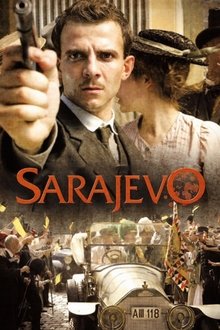
Sarajevo (2014)
The events in Sarajevo in June 1914 are the backdrop for a thriller directed by Andreas Prochaska and written by Martin Ambrosch, focusing on the examining magistrate Dr. Leo Pfeffer (Florian Teichtmeister) investigating the assassination of Archduke Franz Ferdinand. Trying to do his job in a time of lawlessness and violence, intrigues and betrayal, Leo struggles to maintain his integrity and save his love, Marija, and her father, prominent Serbian merchant. But the events of Sarajevo have set into motion an inescapable course of events that will escalate to become … the Great War.

Herbstromanze (1981)
A short vacation should let the 17-year-old, deaf-mute Veronika forget the death of her beloved father, so the plan of her mother Christina. The place of recreation, however, is not chosen happily, due to lack of money: Gut Vorwald in the Sauerland region belongs to the mature nobleman Benno von Caldern, to whom Christina once pledged herself in her youth before meeting her future husband and renouncing Benno. Under the golden roof of autumnal oak crowns, the feelings of the past return, not without dramatic consequences.
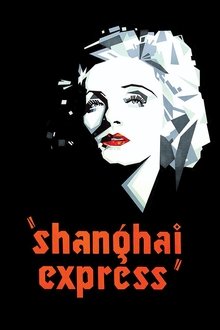
Shanghai Express (1932)
A beautiful temptress re-kindles an old romance while trying to escape her past during a tension-packed train journey.
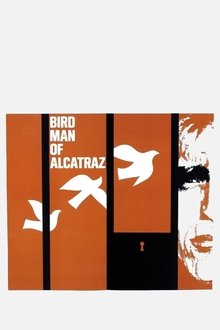
Birdman of Alcatraz (1962)
After killing a prison guard, convict Robert Stroud faces life imprisonment in solitary confinement. Driven nearly mad by loneliness and despair, Stroud's life gains new meaning when he happens upon a helpless baby sparrow in the exercise yard and nurses it back to health. Despite having only a third grade education, Stroud goes on to become a renowned ornithologist and achieves a greater sense of freedom and purpose behind bars than most people find in the outside world.

Cool Hand Luke (1967)
When petty criminal Luke Jackson is sentenced to two years in a Florida prison farm, he doesn't play by the rules of either the sadistic warden or the yard's resident heavy, Dragline, who ends up admiring the new guy's unbreakable will. Luke's bravado, even in the face of repeated stints in the prison's dreaded solitary confinement cell, "the box," make him a rebel hero to his fellow convicts and a thorn in the side of the prison officers.

The Pride of the Firm (1914)
Der Stolz der Firma, meaning The Pride of the Business, is a classic German silent film from 1914. The film tells the story of a shrewd apprentice and is filmed in the comical style of director Lubitsch. This is one of the few Lubitsch films from World War I that wasn’t lost.

Doctor Zhivago (1965)
The life of a Russian physician and poet who, although married to another, falls in love with a political activist's wife and experiences hardship during World War I and then the October Revolution.

The Great Dictator (1940)
Dictator Adenoid Hynkel tries to expand his empire while a poor Jewish barber tries to avoid persecution from Hynkel's regime.

The Murderers Are Among Us (1946)
After returning from a concentration camp, Susanne finds a traumatized ex-soldier living in her apartment in bombed out Berlin. Together the two try to move past their experiences during WWII.

Lawrence of Arabia (1962)
During World War I, English officer Thomas Edward 'T.E.' Lawrence sets out to unite and lead the diverse, often warring, Arab tribes to fight the Turks.

Paths of Glory (1957)
A commanding officer defends three scapegoats on trial for a failed offensive that occurred within the French Army in 1916.

Tabu: A Story of the South Seas (1931)
On the South Pacific island of Bora Bora, a young couple's love is threatened when the tribal chief declares the girl a sacred virgin.
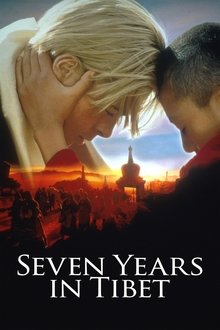
Seven Years in Tibet (1997)
Austrian mountaineer Heinrich Harrer journeys to the Himalayas without his family to head an expedition in 1939. But when World War II breaks out, the arrogant Harrer falls into Allied forces' hands as a prisoner of war. He escapes with a fellow detainee and makes his way to Lhasa, Tibet, where he meets the 14-year-old Dalai Lama, whose friendship ultimately transforms his outlook on life.
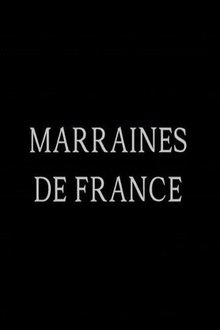
Marraines de France (1916)
In times of World War I, a group of boisterous young ladies occurs to them that they could help the boys of the front writing letters to them and, thus, becoming their godmothers of war. Madeleine writes to the soldier Jacques Bertin, but, out of prudence, instead of giving her true identity, she impersonates her late grandmother. When the soldier comes on leave and wants to see her, the mistake will bring humorous consequences.

Appointment in Bray (1971)
In 1917, the First World War is raging. Julien is from Luxemburg, so instead of having to go to war he studies piano in Paris. One day his friend Jacques, also a musician and now a fighter pilot on the front, invites him to spend a few days in his family's empty house in Bray. The housekeeper, a beautiful stoic woman lets Julien in, but his friend is late and he is obliged to wait. In the meantime, he starts reminiscing of the pre-war days spent with his friend and Jacques' girlfriend Odile.
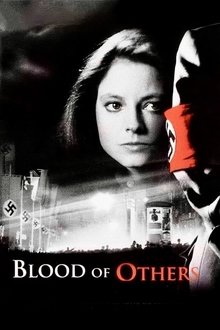
The Blood of Others (1984)
In the German-occupied Paris, Helene is torn between the love for her boyfriend Jean, working for the resistance and the German administrator Bergmann, who will do anything to gain her affection.

Sense and Sensibility (1995)
The Dashwood sisters, sensible Elinor and passionate Marianne, whose chances at marriage seem doomed by their family's sudden loss of fortune. When Henry Dashwood dies unexpectedly, his estate must pass on by law to his son from his first marriage, John and wife Fanny. But these circumstances leave Mr. Dashwood's current wife, and daughters Elinor, Marianne and Margaret, without a home and with barely enough money to live on. As Elinor and Marianne struggle to find romantic fulfillment in a society obsessed with financial and social status, they must learn to mix sense with sensibility in their dealings with both money and men.

Snipers Valley (2007)
Young Bundeswehr soldiers Tom and Charly are stationed in Kosovo with the KFOR peacekeeping force. Their mission is to secure peace. Although the brutal war between the enemy Serbs and Albanians is officially over, the hatred between people continues to smoulder. When Tom and Charly rescue the young Serbian Mirjana from the fatal shot of the young sniper Durcan, they get caught between all fronts. They lose their professional distance due to the resulting closeness to Mirjana - who has to learn that her father was a war criminal - but also to Durcan - whose entire family was wiped out. Soon they are entangled in a conflict about guilt, manipulation, love and revenge...
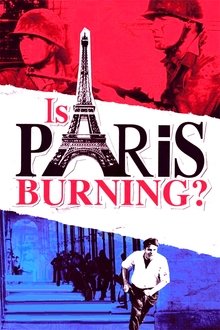
Is Paris Burning? (1966)
Near the end of World War II, Gen. Dietrich von Choltitz receives orders to burn down Paris if it becomes clear the Allies are going to invade, or if he cannot maintain control of the city. After much contemplation Choltitz decides to ignore his orders, enraging the Germans and giving hope to various resistance factions that the city will be liberated. Choltitz, along with Swedish diplomat Raoul Nordling, helps a resistance leader organize his forces.
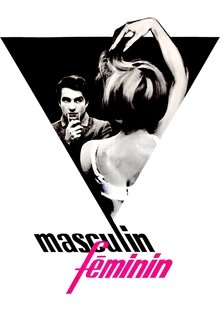
Masculin Féminin (1966)
Paul, a young idealist trying to figure out what he wants to do with his life, takes a job interviewing people for a marketing research firm. He moves in with aspiring pop singer Madeleine. Paul, however, is disillusioned by the growing commercialism in society, while Madeleine just wants to be successful. The story is told in a series of 15 unrelated vignettes.